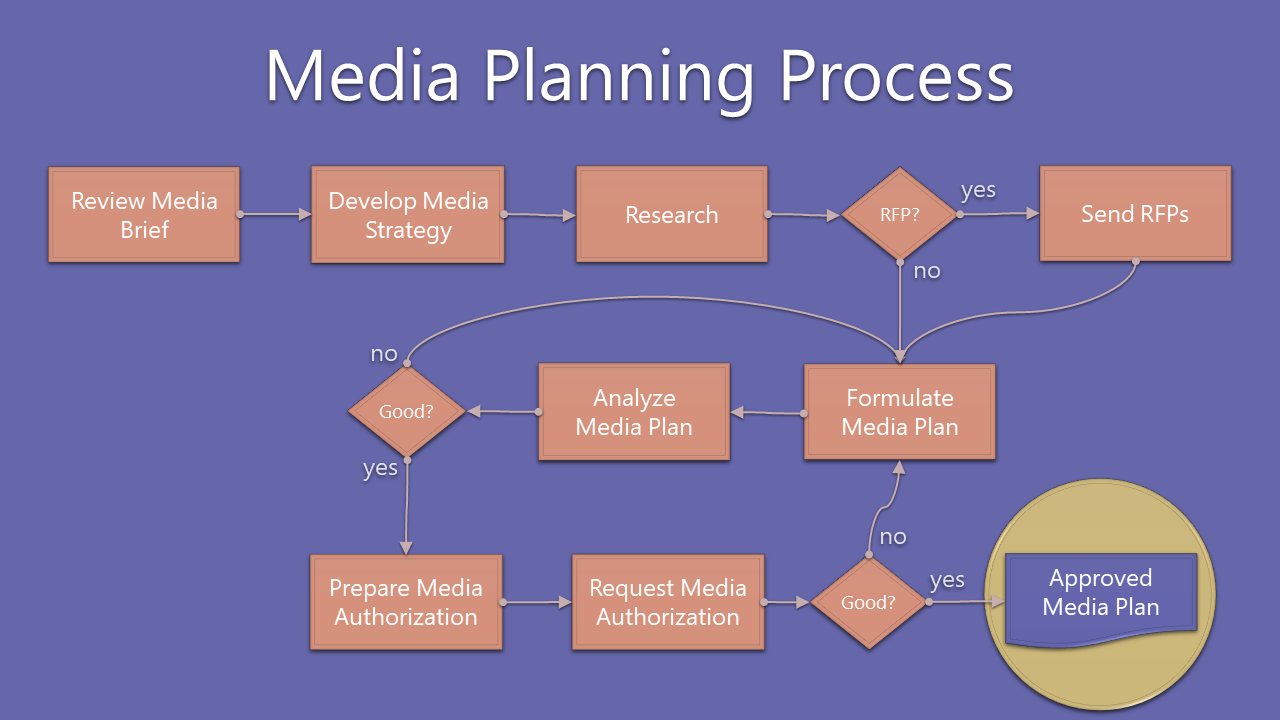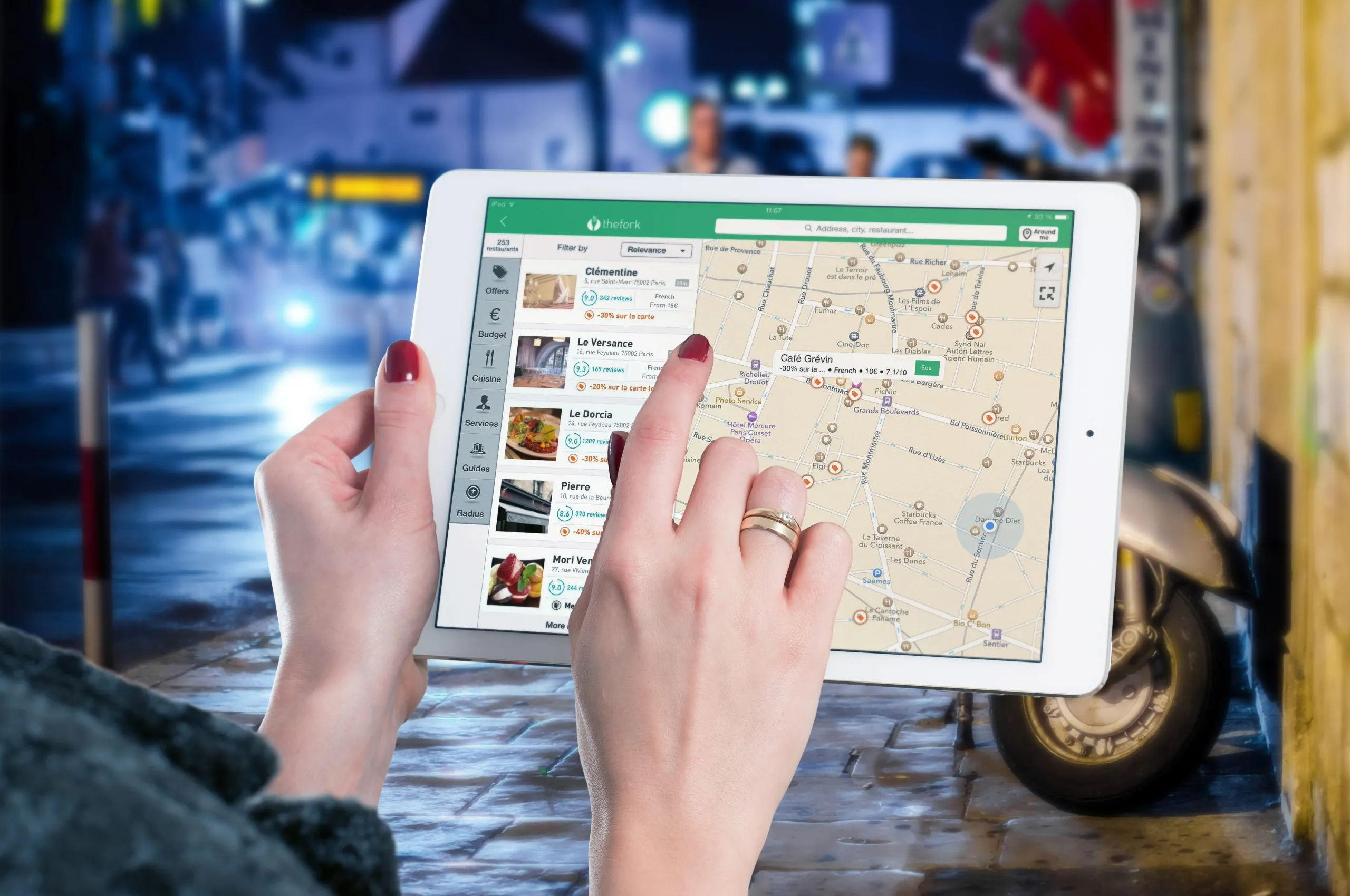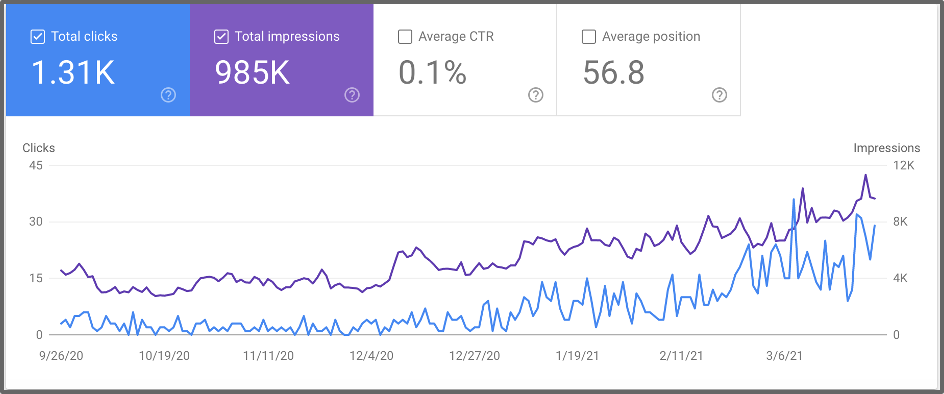16 min to read
Are you tired of pouring time and money into marketing strategies that yield lackluster results? Do you dream of a well-executed marketing plan that boosts your business to new heights? Look no further. A solid marketing plan is essential for success in today's competitive business landscape. Whether you're a small startup or an established brand, a strategic approach to marketing can make all the difference. In this blog post, we will guide you through six powerful steps to create an effective marketing plan that will captivate your target audience, generate leads, and propel your business forward. Let's get started.
CodeDesign is the leading digital marketing agency in Lisbon Portugal.
Conduct Market Research
Market research is a crucial first step in creating an effective marketing plan. It involves gathering and analyzing information about your target market, industry trends, and competitors to make informed decisions. By understanding your customers' needs, preferences, and behaviors, you can tailor your marketing strategies to reach and engage them effectively.
Market research also helps identify potential opportunities and challenges, allowing you to make strategic decisions and differentiate yourself from competitors. Through comprehensive market research, you can gain valuable insights that will guide the development of your marketing objectives, strategies, and tactics, ensuring that your efforts are focused and impactful.
Set Clear Marketing Objectives
Clear marketing objectives are the foundation of a successful marketing plan. These objectives should be specific, measurable, attainable, relevant, and time-bound (SMART). By defining clear objectives, you provide a direction for your marketing efforts and establish benchmarks for success. Aligning your marketing objectives with overall business goals ensures that your efforts contribute directly to the growth and profitability of the organization.
Moreover, understanding the needs and insights of your target market is crucial in setting objectives that resonate with your audience. Clear marketing objectives help focus your resources and guide decision-making throughout the marketing process, ensuring that your efforts are purposeful, measurable, and aligned with your desired outcomes. Read this complete guide on digital marketing funnel and then choose the right digital marketing channel for your business.
Implement Effective Campaigns
Implementing effective marketing campaigns requires careful planning and execution. Along with utilizing various channels and tactics, incorporating giveaways and promotional materials can significantly enhance the impact of your campaigns. For instance, you can create your own custom pins to distribute as promotional items during events or as part of your product packaging. These pins can feature your company logo, slogan, or even a unique design that represents your brand. Giveaways and promotional materials serve as tangible reminders of your brand, helping to increase brand awareness and foster customer loyalty.
When implementing giveaways, consider offering items relevant to your target audience and aligning with your brand identity. Additionally, promotional materials such as brochures, flyers, or branded merchandise can effectively communicate your value proposition. Ensure these materials are well-designed, compelling, and convey a clear call to action to maximize their effectiveness in driving customer engagement and conversions.
Develop a Comprehensive Strategy
A comprehensive marketing strategy forms the backbone of a successful marketing plan. It involves systematically achieving your marketing objectives by defining your target market, determining the marketing mix, and crafting a compelling value proposition. By clearly identifying your target audience, you can tailor your messaging and select the most effective channels to reach them.
Developing a comprehensive strategy also entails determining the optimal product offerings, pricing strategies, promotional tactics, and distribution channels that align with your target market and business goals. A well-defined strategy provides a roadmap for your marketing activities, ensuring that all efforts are coordinated, cohesive, and focused on delivering value to your customers while achieving your desired business outcomes.
Craft a Compelling Brand Identity
A compelling brand identity is crucial for standing out in a crowded marketplace and creating a strong connection with your target audience. It involves developing a unique brand positioning, personality, and visual identity that resonate with your customers. By clearly defining your brand's values, mission, and key differentiators, you can differentiate yourself from competitors and build a loyal customer base.
Crafting a compelling brand identity also includes designing a memorable brand name, logo, and visual elements that reflect your brand's essence and effectively communicate your value proposition. Consistency in messaging and visual elements across all marketing touchpoints further reinforces your brand identity and helps build trust and recognition among your target audience.
Monitor and Measure Results

Monitoring and measuring the results of your marketing efforts is essential for evaluating the success and effectiveness of your marketing plan. By tracking key performance indicators (KPIs) aligned with your marketing objectives, you can assess the impact of your campaigns and make data-driven decisions. Utilizing analytics tools and technologies, you can gather valuable insights on customer behavior, campaign performance, website traffic, conversion rates, and more.
Regularly reviewing and analyzing these metrics enables you to identify areas of improvement, optimize your marketing strategies, and allocate resources effectively. Monitoring and measuring results also provide valuable feedback for refining your marketing plan, ensuring that you stay on track to achieve your goals and maximize your return on investment (ROI).
Creating an effective marketing plan requires a strategic and systematic approach. By conducting thorough market research, setting clear objectives, developing a comprehensive strategy, and crafting a compelling brand identity, you lay the groundwork for impactful marketing campaigns. Implementing effective campaigns, including giveaways and promotional materials, helps drive customer engagement. Finally, monitoring and measuring results allow for data-driven insights and continuous improvement. By following these powerful steps, you can create a marketing plan that effectively reaches your target audience, delivers results, and drives business growth.
Off-the-beaten-track ideas for promoting your business
Let's start with a quaint, old-school technique - networking. Yes, that ancient art of connecting with people in the real world. Is it antiquated? Some might argue so. But the reality is, it still holds value. It's a bit like that old vinyl record player collecting dust in your attic. It might not be the most cutting-edge tech, but the rich, full-bodied sound it produces is timeless, unmatched. So it is with networking. A personal connection can stand out like a beacon in a world saturated by digital interactions. So, let's dust off those business cards and shake a few hands, shall we?
Second on our list, partnerships. Strategic, you know. Like those pairs of dancers at a salsa club, working together to create something beautiful. Finding a complementary business and collaborating on a project can help you reach customers you might not have had access to otherwise. A flower shop and a wedding venue? A gym and a health food store? Why not! Read this guide on E-commerce supply chain and voice search optimization.
What about public speaking? That thought sends a chill down your spine. But hold on a minute! It’s not as terrifying as it may sound. You're simply sharing your expertise with an audience who's eager to learn. And remember, you're the subject matter expert here. So, whether it's a local business forum or a larger conference, your voice could be the key to unlocking new opportunities.
And then, there's cause marketing. Altruism? A marketing strategy? Absolutely! Many consumers these days are socially conscious. They’re mindful of where they spend their money. Aligning your business with a cause that you genuinely care about can attract these discerning customers. It's not just about selling a product or a service. It's about selling a story. Your story. A story of a business that's not just out to make a quick buck, but one that cares about making a difference.
Finally, let's discuss guerrilla marketing. Now, I'm not talking about dressing up in a gorilla suit and handing out flyers. No. Guerrilla marketing is about being bold, being creative. Unconventional. It's about making a splash in a crowded market with an innovative campaign that people will remember.
And there you have it! A handful of alternative ways to promote your business. So, what are you waiting for? Get out there and make some noise! It's time to let the world know what you and your business are all about.

Can you help me build a Media Plan?
Although several of these ideas are straightforward and don't require much investment, sometimes the media pushes the needle. Creating a marketing media plan, eh? It's like preparing for a cross-country road trip. You need a map!
Step 1: The Destination - Your Goals. This is like choosing that perfect vacation spot. You need to be specific. "I want to increase sales" is like saying "I want to go somewhere fun". Where exactly? Let's say you want to increase sales by 20% in the next quarter or grow your email subscriber list by 500 in the next two months. Concrete, tangible, measurable.
Step 2: Choosing the Ride - Your Target Audience. This isn't just about who they are; it's about getting into their shoes, and seeing the world from their point of view. Imagine if you're targeting tech-savvy college students. Your approach will differ from a 40-year-old professional who's all about efficiency. Detailed personas here are your best friend—age, gender, income, location, behavior, interests, challenges - the works. Understand your audience inside and out.
Step 3: Fueling Up - Your Budget. This isn't just about the amount; it's about how you allocate it. Remember, every dollar spent should yield a return. Consider costs like media buys, content creation, and agency fees. For example, if you're a small business, you might dedicate a larger portion of your budget to local ads and influencer partnerships, instead of expensive TV commercials. Keep a contingency reserve, too for unexpected opportunities.
Step 4: The Map - Your Media Channels. You need to know the landscape like a seasoned explorer. Every platform has a different audience, format, and vibe. Instagram, for example, is all about eye-catching visuals and has a younger demographic. LinkedIn, conversely, is perfect for B2B marketing with a professional tone—mix and match platforms based on your audience's preferences and your campaign's needs.
Step 5: Roadside Attractions - Your Campaigns. This is where your creativity comes to play. Each campaign is a stop on your journey, an attraction to draw in your audience. Make sure they align with your overall goals. For instance, if your goal is to increase brand awareness, a viral social media challenge could be a campaign. Or, if it's lead generation, a webinar with a signup form could be your move.
Step 6: Pit Stops - Evaluation. This is your reality check. Regularly assess your plan's performance against your goals. Are you gaining traction? Tools like Google Analytics can track website traffic, while platform-specific insights (like Facebook Insights) can provide data on social media engagement. Don't just observe; act. If something isn't working, be ready to shift gears. Remember, the best plans are flexible.
Codedesign has a team media of strategy, and we are always available to help you every step of the way.

Think Global, but keep acting local. Here's a case study!
Alright, time for some storytelling! Let's delve into the case of "Healthy Bites," a health food retailer. Once upon a time, Healthy Bites struggled with their online and offline sales. Sounds familiar, doesn't it? Let's see how they turned it around.
Part 1: The Challenge Healthy Bites had a strong local presence in Austin, Texas, with a loyal customer base. However, their online and offline sales were stagnating. The existing digital marketing strategy was mostly generic, focusing on a national audience and competing with large-scale retailers.
Part 2: The Strategy Shift Healthy Bites decided to change gears and adopt a local SEO strategy. The goal? Capturing the local market more effectively.
Step one, they optimized their Google My Business listing. They ensured the business name, address, and phone number were accurate. They also added high-quality photos of their store and products, and updated their business hours.
Step two, they started focusing on local keyword optimization. They didn't just target "health food store," but "health food store in Austin," "organic food in Austin," and so on. They updated their website content and metadata accordingly.

Step three, they collected and responded to online reviews, a crucial local ranking factor. They encouraged happy customers to leave reviews and diligently responded to both positive and negative comments.
Part 3: The Implementation: Healthy Bites used various tools to implement and monitor these changes. Google Analytics was used to track changes in their website traffic, and SEMrush was used for local keyword tracking.
Part 4: The Impact The results? After just three months, Healthy Bites saw a 35% increase in website traffic, 75% of that being from specific search terms with location. More importantly, their store appeared in the "Local 3-pack" on Google for many of their target keywords.
Their offline sales also improved significantly. Many customers mentioned they found the store through an online search. Positive online reviews even drew in some. In six months, in-store sales rose by 20% and online sales by an impressive 40%.
Healthy Bites is a testament to the power of a targeted local SEO strategy. From stagnation to growth, they enjoy increased visibility, an expanded customer base, and flourishing online and offline sales.
And there you have it - a real-world tale of SEO transformation. Remember, every change is a chance to improve.
What team do I need for a modern marketing team? (focusing first on B2B)
Working closely with several recruitment companies, and hiring all the time on behalf of our clients, we would say that nowadays, some positions are critical for the success of a B2B. Yes, it changes with the industry, but let's assume we are looking into average client types. In this competitive landscape, all have to work as team, so let's call it an orchestra.

- The Maestro: Strategic Thinker. First, you need a maestro, a strategic thinker to conduct the orchestra. Someone who can formulate long-term plans, align marketing strategies with business goals, and navigate the often complex B2B sales funnel.
- The Virtuoso: Content Creator. Next, the virtuoso - the content creator. In B2B marketing, content is key. Your content creator should be able to craft engaging, educational, and persuasive content that speaks directly to other businesses needs and pain points.
- The Soloist: SEO Specialist. Then, there's the soloist, the SEO specialist. They optimize your content to rank high in search engine results, amplifying your reach. They understand the intricacies of keyword research, link building, and staying abreast of the ever-evolving SEO landscape.
- The Ensemble: Data Analysts. Let's not forget the ensemble, the data analysts. In this age of data-driven decision-making, they're the ones who make sense of the numbers. They interpret data to track campaign performance, measure ROI, and derive insights that help optimize marketing strategies.
- The Composer: Creative Designer. You'll also need a composer, a creative designer. Their role is to translate marketing ideas into visually appealing and compelling designs. From website design to infographics, they ensure your brand stands out in the crowded B2B market.
- The Chorus: Social Media Managers. The chorus, the social media managers, have a critical role. They manage your brand's voice across various social platforms, fostering community, driving engagement, and converting followers into leads. They're the ones who resonate with your audience, note after note.
- The Troubadour: Event Planner. Finally, the troubadour, the event planner. In B2B marketing, events and webinars offer an opportunity to connect directly with prospective customers. Your event planner should be able to coordinate and execute successful events, be they virtual or in-person.
Building your dream B2B marketing team? It's like composing a symphony. Each member plays a unique part, but they create a marketing masterpiece when they come together. So, tune your instruments, step onto the stage, and let the music play!
These core competencies integrate with a remaining digital team (Codedesign digital marketing team, ideally).
- Digital Strategist. At the helm, you need a digital strategist. Think of them as the puzzle master. They'll design a comprehensive digital marketing plan, aligning it with business goals. They need a firm grasp of the digital landscape and the ability to orchestrate multi-channel campaigns.
- Content Marketer. The wordsmith, or content marketer, is next. In the B2B digital realm, content is king and queen. You need someone who can create compelling, informative, SEO-friendly content that captures the attention of businesses, solves their problems, and nurtures leads.
- SEO Specialist. Don't forget the code breaker, your SEO specialist. They hold the key to the enigma that is search engine algorithms. They'll ensure your content tops search engine results, understand keyword research, backlink strategy, and have the agility to adapt to ever-changing SEO rules.
- Data Analyst. You'll need a number cruncher, a data analyst. With many digital metrics available, they can interpret this data to draw meaningful insights. They'll help optimize campaigns, measure ROI, and ensure hard data drive your marketing decisions.
- Digital Graphic Designer. Then comes the artiste, your graphic designer. Visual appeal is a critical part of digital engagement. This creative soul will transform your content into visually striking, brand-consistent designs that stop scrollers in their tracks.
- Social Media Manager. The networker, or social media manager, is your voice in the digital crowd. They'll manage your social platforms, interact with your community, drive engagement, and turn followers into leads and customers. They'll know the ins and outs of LinkedIn, Twitter, Facebook, and more.
- Digital Advertising Specialist. Lastly, bring in the trailblazer, your digital advertising specialist. They'll spearhead your paid campaigns on search engines and social media, always aiming for the highest ROI. Knowledge of PPC, display advertising, and programmatic buying is in their toolkit.
Assembling a modern B2B digital marketing team is like piecing together a puzzle, we can definitely help you with that. Each skill is a piece that, when fitted together, completes the image of success. So let's start piecing together our masterpiece!
FAQS - Frequently Asked Questions
What is the significance of conducting market research for your marketing plan?
Conducting market research is crucial for your marketing plan because it provides a solid foundation for making informed decisions and crafting strategies that are more likely to succeed. Market research helps you understand your target audience, including their needs, preferences, behaviors, and how they perceive your brand compared to competitors. It also provides insights into market trends, opportunities for growth, and potential challenges within your industry. This knowledge enables you to tailor your marketing efforts to meet the specific demands of your audience, optimize your product or service offerings, and position your brand effectively in the market. Ultimately, thorough market research minimizes risks by guiding your marketing plan towards approaches that are more likely to resonate with your intended audience and achieve your business objectives.
How do you set clear, measurable marketing objectives?
Setting clear, measurable marketing objectives involves defining specific goals that are aligned with your overall business strategy and can be quantitatively assessed. Start by identifying what you aim to achieve through your marketing efforts, such as increasing brand awareness, boosting sales, or growing your customer base. Make your objectives SMART: Specific, Measurable, Achievable, Relevant, and Time-bound. For instance, rather than setting a goal to "increase sales," aim for a more precise objective like "increase online sales by 15% within the next quarter." This clarity helps in creating focused marketing strategies and enables you to track progress and measure success effectively, allowing for adjustments as needed to ensure your marketing efforts are driving the desired outcomes.
What are the benefits of implementing effective marketing campaigns?
Implementing effective marketing campaigns can bring numerous benefits to a business, including increased brand awareness, enhanced brand loyalty, higher sales, and improved market share. Well-crafted campaigns can effectively communicate your brand's message, values, and offerings to your target audience, resonating with their needs and preferences. This not only attracts new customers but also strengthens relationships with existing ones, fostering trust and loyalty. Effective marketing campaigns also provide valuable insights into customer behavior and preferences, allowing for better-informed business decisions and strategy adjustments. Additionally, they can differentiate your brand from competitors, positioning your business as a leader in your industry and driving long-term growth.
Why is a comprehensive marketing strategy essential for success?
A comprehensive marketing strategy is essential for success because it serves as a roadmap for achieving your business's marketing goals and objectives. It ensures that all marketing efforts are aligned with the overall business strategy and target audience needs, optimizing the use of resources for maximum impact. A well-developed strategy integrates various marketing channels and tactics, such as digital marketing, content marketing, and traditional advertising, to create a cohesive and consistent brand message across all platforms. This approach enables businesses to effectively reach and engage their target audience, build brand awareness, and drive conversions. Additionally, a comprehensive strategy includes mechanisms for monitoring and measuring performance, allowing for ongoing optimization based on data-driven insights.
How can crafting a compelling brand identity boost your business?
Crafting a compelling brand identity can significantly boost your business by creating a strong, memorable impression on your target audience. A well-defined brand identity that resonates with your audience's values and aspirations can differentiate your business from competitors, fostering customer loyalty and advocacy. It encompasses various elements, including your logo, color scheme, typography, and messaging, all of which work together to convey your brand's personality, values, and promises. A compelling brand identity helps to build trust and emotional connections with customers, influencing their purchase decisions and enhancing customer retention. By consistently presenting your brand identity across all touchpoints, you can reinforce brand recognition, strengthen your market position, and drive long-term business growth.
What methods are effective for monitoring and measuring marketing results?
Effective methods for monitoring and measuring marketing results include using analytics tools, setting up key performance indicators (KPIs), conducting customer surveys, and monitoring social media engagement. Digital analytics tools, such as Google Analytics, provide detailed insights into website traffic, user behavior, and conversion rates, allowing you to assess the performance of your online marketing efforts. Setting clear KPIs related to your marketing objectives, such as lead generation, sales conversion rates, or social media followers growth, helps in tracking progress and evaluating success. Customer surveys can offer feedback on customer satisfaction and brand perception. Social media analytics enable you to measure engagement, reach, and the effectiveness of your content marketing strategy. Regularly analyzing these metrics allows for data-driven decision-making and strategic adjustments to optimize marketing performance.
How can giveaways and promotional materials enhance campaign impact?
Giveaways and promotional materials can significantly enhance campaign impact by increasing brand visibility, generating excitement, and encouraging engagement. These tactics create a sense of value and appreciation among your target audience, fostering positive brand associations and loyalty. Giveaways can stimulate social media sharing and word-of-mouth publicity, extending your brand's reach to potential new customers. Promotional materials, such as branded merchandise, serve as tangible reminders of your brand, keeping it top of mind with consumers. When effectively integrated into your marketing strategy, giveaways and promotional items can drive higher engagement rates, boost campaign visibility, and ultimately contribute to increased sales and customer retention.
What role does digital marketing play in a modern marketing plan?
Digital marketing plays a pivotal role in a modern marketing plan, as it allows businesses to reach and engage with their target audience through various online channels. The widespread use of the internet and digital devices has made digital marketing essential for connecting with consumers where they spend a significant amount of time. Digital marketing encompasses a range of strategies, including content marketing, search engine optimization (SEO), pay-per-click (PPC) advertising, social media marketing, and email marketing. These strategies enable targeted, personalized, and measurable marketing efforts that can drive brand awareness, generate leads, and boost sales. Digital marketing offers the flexibility to quickly adjust strategies based on data-driven insights, ensuring businesses can effectively respond to market trends and consumer behaviors.
How do social media and blogging contribute to marketing success?
Social media and blogging significantly contribute to marketing success by enhancing brand visibility, engaging the target audience, and establishing brand authority. Social media platforms offer a dynamic environment to interact with consumers, share content, and promote products or services, enabling businesses to build relationships and foster community around their brand. Effective social media strategies can drive traffic, increase engagement, and boost conversions. Blogging, on the other hand, allows businesses to create in-depth, valuable content that showcases their expertise and addresses their audience's needs and interests. High-quality blog content can improve SEO, attract organic traffic, and position the brand as a thought leader in its industry. Together, social media and blogging are powerful tools for storytelling, driving engagement, and supporting overall marketing objectives.
What are innovative ways to promote your business beyond traditional marketing?
Innovative ways to promote your business beyond traditional marketing include leveraging influencer partnerships, creating interactive and immersive experiences through augmented reality (AR) or virtual reality (VR), hosting live events or webinars, utilizing user-generated content, and engaging in community and social causes. Influencer partnerships can extend your reach to new audiences and build trust through association. AR and VR offer unique, engaging experiences that can showcase your products or services in a compelling way. Live events and webinars provide opportunities for direct engagement and value delivery to your audience. Encouraging user-generated content, such as reviews or social media posts, fosters community and provides authentic endorsements. Supporting social causes or community projects can enhance brand image and appeal to consumers' values. These innovative strategies can differentiate your brand, create memorable experiences, and drive deeper engagement with your target audience.

About Bruno GavinoBruno Gavino is the CEO and partner of Codedesign, a digital marketing agency with a strong international presence. Based in Lisbon, Portugal, with offices in Boston, Singapore, and Manchester (UK) Codedesign has been recognized as one of the top interactive agencies and eCommerce agencies. Awarded Top B2B Company in Europe and Top B2C company in retail, Codedesign aims to foster personal relationships with clients and create a positive work environment for its team. He emphasizes the need for digital agencies to focus on data optimization and performance to meet the increasingly results-driven demands of clients. His experience in digital marketing, combined with a unique background that includes engineering and data, contributes to his effective and multifaceted leadership style. |

About CodedesignCodedesign is a digital marketing agency with a strong multicultural and international presence, offering expert services in digital marketing. Our digital agency in Lisbon, Boston, and Manchester enables us to provide market-ready strategies that suit a wide range of clients across the globe (both B2B and B2C). We specialize in creating impactful online experiences, focusing on making your digital presence strong and efficient. Our approach is straightforward and effective, ensuring that every client receives a personalized service that truly meets their needs. Our digital agency is committed to using the latest data and technology to help your business stand out. Whether you're looking to increase your online visibility, connect better with your audience, get more leads, or grow your online sales. For more information, read our Digital Strategy Blog or to start your journey with us, please feel free to contact us. |
CodeDesign is leading:
- Digital Agency
- Digital Marketing Agency
- Digital Ecommerce Agency
- Amazon Marketing Agency


Add comment ×